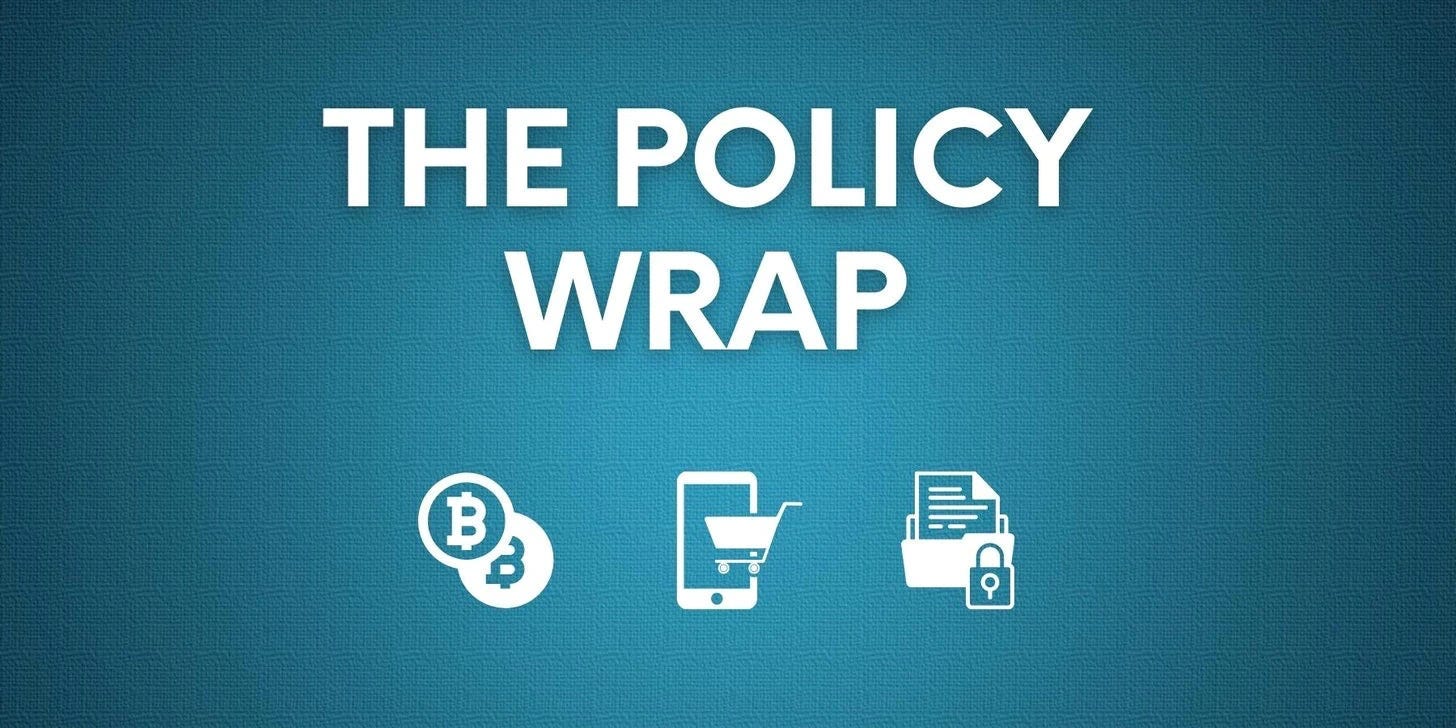Policy Wrap: RBI contemplating introduction of fintech regulations, states authorised to regulate gambling and not online gaming, ONDC goes beta live in five more cities, and more
Share your feedback and comments with us at office@adif.in
POLICIES & REGULATIONS IN INDIA
RBI contemplating introduction of fintech regulations
Deputy Governor T. Rabi Sankar stated on Friday that the Reserve Bank of India (RBI) is considering issuing a regulation for companies in the fintech industry. There are currently no fintech laws, but the RBI is closely observing how the fintech industry is developing. The RBI is discussing the matter with the industry to determine whether they need to be regulated.
The statement declined to provide a date for the laws on fintech and stated that they would only be implemented following industry consultations.
The RBI will time its rules such that the industry is given room to expand.
Mr Sankar also mentioned that the RBI is not concerned about cryptocurrency trading conducted by individuals, but private cryptocurrencies themselves are a problem.
He emphasised the dangers posed by "stable coins" linked to other currencies in developing market economies, particularly with regard to monetary policy, capital management, and financial stability.
States authorised to regulate gambling, SRBs to scrutinize online gaming
Shri Rajeev Chandrasekhar, Minister of State for Electronics & Information Technology, said last Friday that states are allowed to regulate gambling, but not online gaming.
He said while addressing the press. "It is not possible. The online gaming rules that have been notified after almost three months of consultation basically say what types of online games are allowed on the Indian internet."
The categories of games that are prohibited, he continued, are those that entail betting and wagering, addiction, user harm or toxicity towards women, anti-religion, anti-child, and similar games.
According to Shri Chandrasekhar, it is the role of the Self-Regulatory Bodies (SRBs), a government initiative, to evaluate each online game and determine if it is appropriate or not. He made it clear that only appropriate games would be permitted on the Indian internet.
The success or failure of the SRB model, the guardrails, and the SRB's accountability requirements are all factors that would need to be carefully considered.
ONDC
ONDC goes beta live in five more cities, tally increases to seven
The Open Network for Digital Commerce (ONDC) expanded to five additional cities including Mumbai, Delhi NCR (including Noida, Gurgaon, and Faridabad), Chennai, Hyderabad, and Kolkata in a beta phase.
Buyers (consumers) and sellers in these five locations, along with Meerut and Bengaluru, which went Beta live in September 2022 and December 2022, respectively, can now use the network. Through the four active buyer applications Paytm, Mystore, Spice Money, and Magicpin, customers will be able to make purchases from the sellers on the ONDC network.
With its current sizeable vendor base, ONDC is capable of expanding its network into further locations. The goal of this announcement is to encourage more firms to join ONDC and take the early-mover advantage, and also because insights and opportunities to enhance the network improve as more customer territories are included.
Prior to the pan-India deployment, the primary goal of the beta launch is to give users a first-hand experience with the open network, get real-time feedback, and conduct extensive testing of the network.
More than 18,000 of the network's more than sellers currently operate from these five cities, which in total span more than 200 cities with over 40,000 sellers.
GST Council to provide clarity on TCS liability of e-commerce suppliers in the ONDC platform
In circumstances when many operators are involved in a transaction, the GST Council is anticipated to provide clarification on the TCS liability of suppliers engaging in e-commerce trading through Open Network Digital Commerce (ONDC) on July 11.
As per the current norms, who should be responsible for TCS compliance under GST legislation is unclear.
Every e-commerce operator is required by the Goods and Services Tax (GST) law to collect TCS at the rate of 1% of the taxable value of goods and services supplied through its platform.
Uncertainty over the liability of TCS deduction is mainly in the market place model, where two intermediaries are involved in a single transaction.
In this scenario, a buyer puts an order on an online shopping site (the buyer app), which then sources the item from a vendor (the seller app). The actual provider then purchases the goods on behalf of the vendor app.
Due to the involvement of multiple parties, the DPIIT has enquired as to who would be obligated to withhold the Tax Collected at Source (TCS), the buyer or seller e-commerce company.
According to experts, the Law Committee, made up of federal and state tax officials, has recommended to the Council that, when multiple e-commerce operators (ECOs) are involved in a single transaction through an ECO platform, the supplier-side should be responsible for ensuring TCS compliance before releasing payment to the supplier.
ANTITRUST
Binance, Binance.US market share slumps due to regulatory crackdowns
As they fight an onslaught of regulatory crackdowns, Binance, the biggest cryptocurrency exchange in the world, and its US affiliate have seen their market share decline this year.
The US Securities and Exchange Commission filed a lawsuit against Binance last month for allegedly breaking the regulator's rules, reducing its global market share from 60% at the beginning of the year to 52%.
Following its decision to stop offering zero-fee transactions for specific trading pairs, Binance started to lose market share in March.
SEC requested a court order to freeze Binance's assets, so the exchange allowed its users until June 13 to remove their dollar holdings. As a result, Binance.US, Binance's ostensibly independent partner, saw its US market share fall to 0.9% on June 26 from over 22% in April.
The second quarter saw the worst decline in spot trade volumes since 2020.


